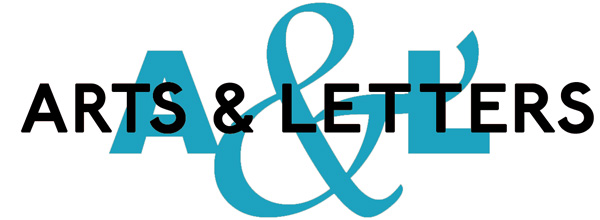Author Archives: Laura Newbern
Contributor News: Jesse DeLong’s full-length debut, The Amateur Scientist’s Notebook, published by Baobab Press

Arts & Letters contributor Jesse DeLong’s poetry collection has been released this month by Baobab Press. His poems “So” and “a lump of snow weights on a branch” were published in volume 2 of Arts and Letters PRIME.
The Amateur Scientist’s Notebook is a collection of poems set among the mines and farmlands of Idaho. The severe landscapes move the speaker to investigate his romantic and familial relationships through lyric considerations of the natural world and scientific concepts.
Purchase his collection here: https://baobabpress.com/books/the-amateur-scientists-notebook/
Congratulations Jesse and all the best of luck from the A&L community!
Ampersand Interview Series: Kat Mustatea interviewed by Kelsie Doran

In the latest Ampersand Interview, Assistant Managing Editor, Kelsie Doran, spoke with Kat Mustatea about instagram, New York, and her piece, Voidopolis, which is published in Issue 42 of Arts & Letters.
Kelsie Doran: “Voidopolis” is a unique story told through the help of Instagram. At what point did you realize you wanted Instagram to be your story-telling vessel, or was this just a natural progression of your social media use?
Kat Mustatea: I quietly deleted seven years’ worth of my Instagram posts one night in June 2020 as a prelude to starting Voidopolis. At that point, New York City was deeply scarred by the pandemic. We had witnessed a staggering amount of death on a daily basis. The rituals of the everyday had become wholly altered under lockdown: daily life felt like a series of avoidances, constraints, and workarounds for things no longer possible to do. I felt that such a profound break with past norms and rituals needed acknowledgement. That whatever stories I might tell needed different rules and formats. All of my theater-related projects had shut down, so I decided to repurpose my Instagram account to enact something performative that, at minimum, might be as harrowing and weird as life itself.
KD: Do you think you would have written a piece like this if you hadn’t found someone like Nikita? What made you and Nikita bond?
KM: Inferno’s conceit is that Dante is being guided through hell by the great poet Virgil, who was clearly a towering literary influence for him. My guide likewise needed to be a poet because my project is equally a poetic journey, a way of organizing and shaping reality through language and its loss. But I am a product of my time and place, and in contemporary letters it feels unseemly and overwrought to make grand claims for the ameliorative role of poetry in the world—even if, like me, you happen to believe in the power of language to profoundly shape reality. We have the internet now; we are in whatever literary mode comes after postmodernism; we are used to a default in which everything is fractured and diffuse. My poet-guide needed to be poorer, pricklier, more obscure than Dante’s; he needed to be able to deploy sarcasm. A hobo, and yet a man of the world. Someone who has seen some things, but is maybe writing in a language no one would bother translating. I want to say I care really very much about Nikita—so much so, I have sometimes felt reluctant to finish Voidopolis. Nikita continues to be so vivid and beautiful to me that I just don’t want to let him go.
KD: Your story leaves us with famous writers, mentioning Dickinson, Kafka, and William S. of Stratford-Upon-Avon, to name a few. Is there a reason your piece starts finds its ending, or rather its pause, here? We do know this story is ongoing, so maybe you could speak to that?
KM: In Canto 4 of Inferno, Dante describes how he gets to chew the fat with a group of poets on a mountaintop, and how “that fair company / Then made me one among them.” For Dante to position himself on equal terms with a coterie of the greatest poets that had ever lived—Homer, Ovid, Lucan, Horace, and Virgil himself—well, it’s a gesture of breathtaking chutzpah. I couldn’t help but take it as an invitation of sorts, to go ahead and write myself into a scene with my own cherished literary figures.
When I submitted Voidopolis for Arts and Letters’ Unclassifiable Prize, I was only a few posts into what would become a 45-post narrative. I submitted what material I had, noting that the project was ongoing. To my delight, it won—and now I get to joke that I am the only person I know who won a prize for a story I hadn’t even finished writing.
KD: In Part 2 you write, “A city in disarray, with its crisis walls and its missing inhabitants, is hardly a city at all.” Do you think New York would thrive if it didn’t have its people?
KM: More than twenty years ago, I underlined the following sentence in my copy of the Inferno (in the foreword of Robert Pinsky’s translation): “A city, according to St. Augustine, is a group of people joined together by their love of the same thing.” It’s an idea that continues to be mysterious to me; a question I have turned over and over in my mind all these years. What are we clinging to when we form cities? What if a city is just a way of clinging to one another?
KD: What is your advice to writers who want to write in an exploratory genre they haven’t tried before?
KM: A framing device is an excellent guardrail if the terrain is uncertain. In my case, the frame for this project was clear from the outset. I knew I was going to move through the Inferno canto by canto. I was going to try to distill an image or event or mood from each canto into a single Instagram post, depicting along the way my impressions of New York City. The text was constrained (no words containing the letter ‘e’), just as my life was. I was going to pay particular attention to the way the conceptual and real-life constraints might subtly affect the narrative. I gave myself 40-ish posts to get through the material, even though there are only 33 cantos in the Inferno, because I know myself and I know I tend to meander.
KD: Do you think you’ll write another piece that is influenced by the pandemic?
KM: Ah, well. I sincerely hope never to have the occasion to write during a worldwide cataclysm ever again.
But I should mention that I will be posting to Instagram two additional sections after Voidopolis, corresponding roughly to Dante’s Purgatorio and Paradiso. Each of the subsequent sections will have its own distinct language constraint and visual style, establishing its own mood of increasing hope as we emerge from pandemic (ie, return to an uneasy kind of Paradise/normalcy).
KD: Any other projects in the works?
KM: Together with my collaborator, Heidi Boisvert, I am working on staging a play I wrote about people who are turning into lizards. The story is, of course, autobiographical.
Kat Mustatea is a playwright and technologist whose experiments with language and live arts stretch theater into the digital age. She uses metaphors of hybridity and transformation to craft performances that investigate absurdity, misunderstanding, and what it means to be American. Her TED talk, about puppets and algorithms, originates a new thesis about the meaning of machines making art. She is a member of NEW INC, the art and tech incubator at The New Museum of Art in New York. Her first poetry manuscript was shortlisted for the Hecht Prize from Waywiser Press.
Ampersand Interview Series: Roy Bentley interviewed by Kelsie Doran

In the latest Ampersand Interview, Assistant Managing Editor, Kelsie Doran, spoke with Roy Bentley about Ohio, Greek mythology, and his upcoming books, Hillbilly Guilt and Beautiful Plenty. You can read his poems in Issue 42 of Arts & Letters.
Kelsie Doran: We have published two of your poems, “The United States of America in the Summertime” and “I Can’t Give You Anything But Love.” Were these poems were written around the same time?
Roy Bentley: To be honest, I don’t recall when either poem was written. They returned to my attention with acceptance by your magazine. I’m not saying that to be a smartass, either. I write a lot—or did during the Trump Years—as a means of escaping the Senselessness.
KD: Ohio obviously has influence in both these poems and as I am a native Clevelander myself I am curious as to why Ohio has produced fodder for your writing?
RB: I love Ohio. It really imbues me—the oxygenated-by-inequality rural-Ohio air I have to breathe to live, the killing-me-softly water no one wants to indict for what it accomplishes quietly, daily—and yet I want so much for Ohio to want to be better. I want to be better; I know what it is to need to get to work on parts of your identity, to strive to be a better person. I mean, I write. Which to me means introspection as a discipline. And introspection is, I think, the first step to Awareness. If honestly applied…
KD: You mention Greek mythology in “The United States of America in the Summertime,” would you say the Greek myths have had an influence in most of your writing?
RB: I took a couple of courses in mythology early on as an undergraduate and got hooked. I have a bound version of The Aeneid within reach at all times!
KD: Where do you write most often? Do you like to have a specific writing space
RB: I do. My wife Gloria has a she-shed. I have the smallest bedroom of a three-bedroom house converted to an office. I write most evenings from around 9pm until 2 or 3am. Every evening, as a rule. If not writing, then sending out submissions or answering the occasional acceptance.
KD: What/who inspires you most as a poet?
RB: Bob Dylan leads a list of songwriters who have taught me about Writing—songwriters have taught me as much as academics. On the academic side: Mary Oliver, Philip Levine—big Philip Levine fan! And I definitely worship at the altar of Robert Frost—he won four Pulitzers, for godssakes, and you hear little discussion of his work.
KD: When did you first consider yourself a poet?
RB: The first time I heard Dylan Thomas read his poems, on a record in a high-school English class in Ohio, I knew what I was—and would thereafter strive to become, if that makes any sense. Fifty years later, ten books of poems to my credit, the name poet fits. I’m comfortable with that. Sure. But, oddly, I like writer more.
KD: What is next for your writing? Is there anything you can share about forthcoming projects or poems?
RB: I have two books coming out this year: Hillbilly Guilt won the Hidden River / Willow Run Poetry Book Award and is due out any day—Main Street Rag is bringing out Beautiful Plenty. (Both sets of galleys done and approved!)
Roy Bentley is a finalist for the Miller Williams prize for Walking with Eve in the Loved City, has published eight books; including American Loneliness from Lost Horse Press, who recently issued a new & selected collection entitled My Mother’s Red Ford. Roy is the recipient of a Creative Writing Fellowship from the National Endowment for the Arts, and fellowships from the Florida Division of Cultural Affairs and Ohio Arts Council. Poems have appeared in Evening Street Review, The Southern Review, Crazyhorse, and Shenandoah among others. Hillbilly Guilt, his newest, won the 2019 Hidden River Arts / Willow Run Poetry Book Award.







